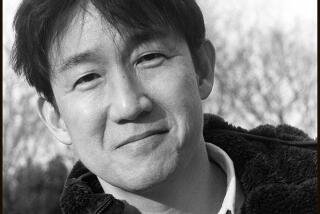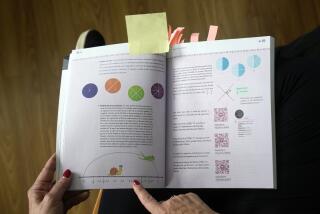Can these neighbors get on the same page?
SEOUL AND TOKYO — Several politicians in South Korea and Japan have begun exploring the possibility of a joint history textbook between their nations and China. But given the lingering differences over issues ranging from past wars to current territorial claims, the proposal faces numerous hurdles.
Members of South Korea’s ruling Grand National Party met informally in Seoul this month with counterparts from the majority Democratic Party of Japan. One of the main topics was whether a joint history textbook could now be developed with government cooperation.
Kang Yong-seok, a GNP lawmaker, was among the South Korean politicians who approached the Japanese.
“We [told DPJ] members that it would be very meaningful to write a common textbook,” Kang said, citing a history textbook created through German-French cooperation.
“We didn’t think the idea was impossible, but the countries have been unable to agree on historical matters,” said DPJ member Masashi Mito. “We agreed to revisit and delve into the differences of historical perspectives and look into how realistic such a project can be.”
Unrelated to the talks between the politicians, Japanese Foreign Minister Katsuya Okada told reporters at the Foreign Correspondents’ Club this month that a trilateral textbook could help mend fences on historical matters.
“It would be ideal for the [three] nations to have a common textbook, although actually taking that route may be far off,” Okada said.
His comments received a favorable response in Seoul.
“We highly appreciate Foreign Minister Okada’s suggestion, considering that it is important for younger generations in Korea, China and Japan to have a correct understanding of history,” South Korean Foreign Minister Yu Myung-hwan said at a news briefing.
In the past, neighboring countries have criticized Japan for its efforts to whitewash its colonial occupations. But the DPJ, which recently rose to power in Japan, has a different outlook.
For example, it has opposed the former ruling party’s official visits to the Yasukuni shrine, where many of the nation’s veterans are buried, including convicted war criminals. Prime Minister Yukio Hatoyama’s pledge to not pay homage at the shrine has been welcomed by other Asian nations.
“It is a leap that Japan started talking about this issue publicly,” said Yang Mi-gang, who worked on a privately published Korea-Japan-China history book available in each of the countries.
The book, “History That Opens the Future,” was written by several dozen scholars from China, South Korea and Japan in 2005, and revised in 2006.
“Writing a common textbook at the government level is daunting because all of those participating in this may act as if they were representatives from national [sports] teams,” Yang said.
Zhixin Wang, an education professor at St. Thomas University near Osaka, Japan, participated from the Chinese side for the book Yang worked on.
“I think a joint history textbook might be a near-impossibility in the present climate,” Wang said. “The countries will have to work out disputed claims over the islands of Senkaku [known as Diaoyutai in China] or the islands of Takeshima [known as Dokdo in South Korea].”
The territorial disputes are exacerbated by potentially rich undersea oil and gas fields.
Kimihiko Sato, a history professor at Tokyo University of Foreign Studies, said obstacles between Japan and South Korea might be easier to resolve than those between Japan and China.
“One problem is Chinese scholars cannot freely state their opinions, and it’s very difficult to formulate a unified view with them,” Sato said.
The Japan-China Joint History Research Committee is a prime example. Formed by scholars in 2006, the panel held its third and most recent meeting in January 2008. A fourth meeting was set for last September, but the Chinese side abruptly canceled a day before the event.
Shinichi Kitaoka, a political science professor at the University of Tokyo, is the co-chair of the committee.
“The Chinese told us, ‘We can’t tell you the reason why we need to postpone,’ ” Kitaoka said.
Japan hopes the meeting can be rescheduled before year’s end.
Son Seung-cheul, a history professor at Kangwon National University and a member of the South Korea-Japan committee, which began work in 2002, said that talks between China and Japan bogged down over differing views on the Nanking massacre.
In that atrocity, tens of thousands of Chinese civilians and soldiers in and around the city -- now known as Nanjing -- were raped and killed by the Imperial Japanese Army beginning in late 1937.
Son also noted that Germany and France’s common textbook came decades after the nations began broad talks over their relations, with the first volume finally published in 2006. The Asian project could be similarly drawn out.
The best approach is to have projects at the private level, among scholars, and leave the government out of it, said Sato, the Tokyo professor.
GNP lawmaker Kang said one way to do that would be for the three countries to write their own perspectives for one book, or to each describe their own country’s historical events.
“Some might see this plan as difficult to realize,” Kang said. “However, once details are laid out, related government ministries would move in with sufficient funds from three states.”
--
Park is a news assistant in The Times’ Seoul Bureau and Nagano is a special correspondent.
More to Read
Sign up for Essential California
The most important California stories and recommendations in your inbox every morning.
You may occasionally receive promotional content from the Los Angeles Times.










